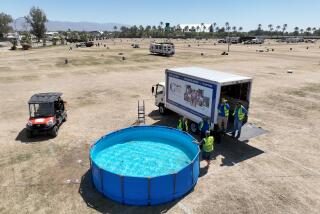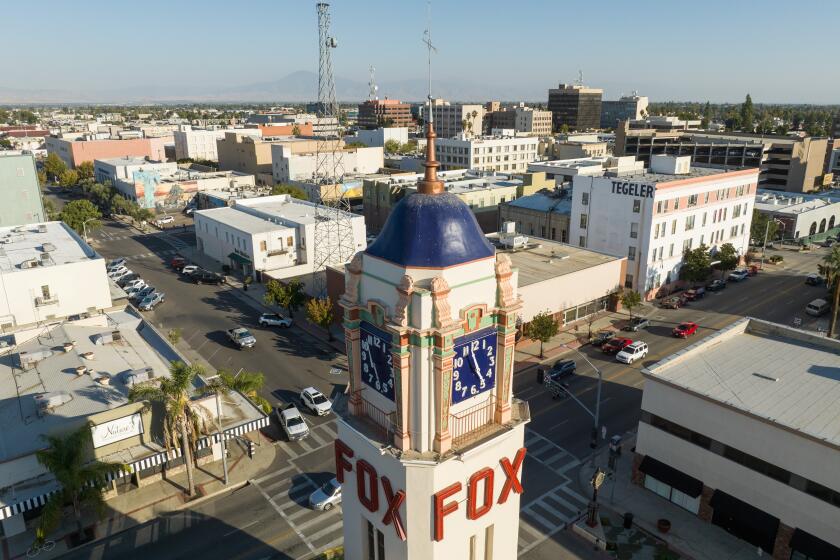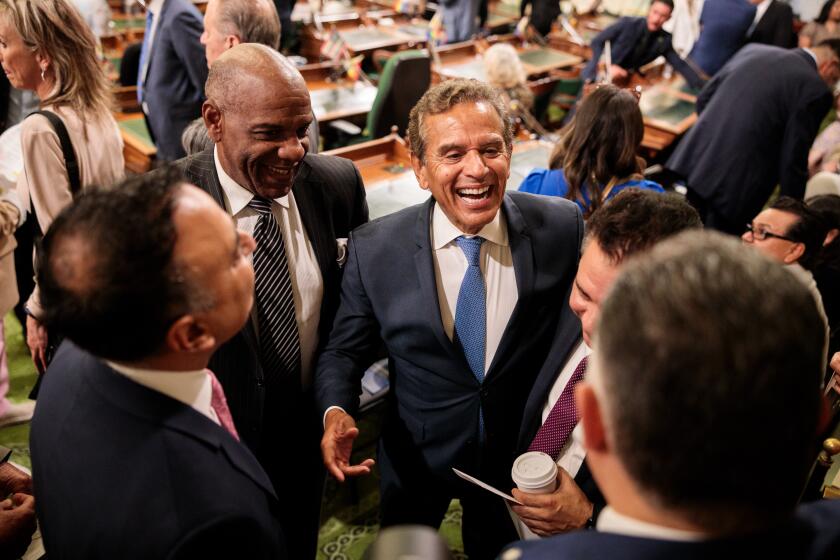L.A.’s New Budget: A Critical Juncture for Riordan and City
If you want to understand the economic and political challenges facing Los Angeles, look past palm-lined generalizations about entrepreneurs and new media to details of the city’s budget.
That’s where great issues can be understood by noting less downtime for trash- collection trucks--a humble detail of the productivity improvements achieved by sanitation bureau employees against an implied threat of privatization and the difficulties of worn-out vehicles.
Understanding also comes from knowing what the figures don’t say: the calculations of deferred maintenance that pay for the asset of more police on the streets through the liability of more potholes and worn-out city vehicles.
Just as in a corporate balance sheet, the Riordan Administration’s new $3.9-billion general budget for the fiscal year beginning July 1 contains mission statements and goals for city departments, along with an accounting trick or two to balance receipts and expenditures.
But even though businesslike, Los Angeles’ budget is not a corporate document but a political one. It offers both the promise of change and evidence of how hard such change is to achieve in government.
Mayor Richard Riordan’s main goals when he took office nearly two years ago were to put more police on the streets but not to raise taxes. Rather, he proposed to save money by making city government more efficient--through privatization of city services if need be--in the pattern of similar efforts sweeping the nation from Phoenix to Philadelphia.
So the new budget has a $58-million increase for about 800 more police officers and other public safety matters. And that expenditure is almost fully offset by spending reductions in sanitation and street maintenance. But privatization hasn’t been used.
Instead, members of the Service Employees International Union pledged productivity improvements, including less overtime for workers and less downtime for garbage trucks. “We got mechanics and drivers to work out problems with the trucks,” says union representative Julie Butcher.
In return, the union got a contract last year--after two years without one--that guarantees members won’t lose jobs from contracting work to private companies. So collective bargaining accomplished more than confrontation. “It’s not enough just to say no to privatization,” says Butcher.
In maintenance, the city has a huge backlog of streets that need resurfacing. Last year, the Commission on Fiscal Responsibility said Los Angeles had to spend more than $70 million a year to catch up with past deficiencies. But fixing streets takes lower priority to other uses for money. The new budget proposes $46 million for maintenance, a little less than last year.
Deferred maintenance is tempting to politicians, but dangerous. Ultimately that’s what brought New York City to its knees in 1975.
Happily, however, Los Angeles is a long way from New York-style financial troubles. Los Angeles’ total debt, at 2% of assessed property value, is half that of New York and Chicago and well below that of almost all other major cities.
And, as in any bloated corporation, there are possibilities for savings through more efficient management. An example are the 57 special assistant jobs in the Fire Department that Riordan has targeted for elimination, at a proposed saving of $6 million.
In business, managers would order such downsizing and that would be that. But there’s a question whether Riordan has the votes to get his budget approved by eight of the 15 City Council members.
The mention of votes tells you that politics, not economics, is the driving force of government. And the protection of jobs, or of traditions by powerful City Council members or civil service department heads takes precedence over efficiency. In government, temporary convenience can become permanent policy.
As an extreme example, Los Angeles city government decided in Depression 1933 not to put money into the Police and Fire departments’ pension fund. And it didn’t do so until 1967. Later, in the 1970s, pensions were indexed to inflation with no added funding to cover such generosity.
The result today is a $3.8-billion unfunded pension liability that the city is slowly paying down.
So reform is difficult, but things are changing nonetheless. There are buyouts in the city budget. And the Department of Water and Power is paying $30 million to reduce its work force by 1,100 employees, or 10%. DWP has to get efficient because utility deregulation is bringing it competition from private electricity suppliers.
And competition, to provide public services at an economic cost and to attract private business, is coming to governments nationwide as well.
That’s why Riordan won the right to fire department heads in an April ballot on charter reform and why there will be further efforts to give Los Angeles’ mayor authority comparable to mayors in Chicago, New York and other cities.
But Riordan doesn’t have that authority yet, which is why reform of the bureaucracy proceeds slowly. (A restaurant owner complains that it took him eight months to open on La Cienega Boulevard, whereas in Glendale and Pasadena he opened restaurants in three months.)
And that’s why the coming fight over budget approval marks a critical juncture for Riordan’s Administration and for Los Angeles. “If he can make the right reforms,” says a political consultant, “in two or three years Los Angeles will be perceived again as a place of new directions.” Time then for palm-lined vistas once again.
(BEGIN TEXT OF INFOBOX / INFOGRAPHIC)
Police Over Potholes
In Los Angeles’ new budget, the Riordan Administration partially fulfills a pre-election pledge by including funds for 800 more police officers, and pays for them partly by productivity savings in sanitation and reductions in street maintenance. Here are highlights from the proposed 1995-96 budget, which takes effect July 1:
Proposed Budgetary Increases
Fiscal Proposed ‘94-95 ‘95-96 Change Percentage Department (millions) (millions) (millions) change Police $1,070 $1,130 $58.9 +6% Fire 414.8 419.6 4.8 +1 Convention Center 49.2 63.2 14 +28
Proposed Cutbacks
Fiscal Proposed ‘94-95 ‘95-96 Department (millions) (millions) (millions) change Transportation $128.8 $118.6 -$10.3 -8% Public Works (Board of Public Works) 5.6 4.0 -1.6 -29 Public Works (Sanitation) 330 287 -43 -13 Public Works (Street Maintenance) 138 129 -9 -7
* Figures are taken from the $3.9-billion proposed general city budget and do not reflect proposed expenditures for independent agencies and pensions.
Source: City of Los Angeles 1995-96 budget summary
More to Read
Start your day right
Sign up for Essential California for news, features and recommendations from the L.A. Times and beyond in your inbox six days a week.
You may occasionally receive promotional content from the Los Angeles Times.






